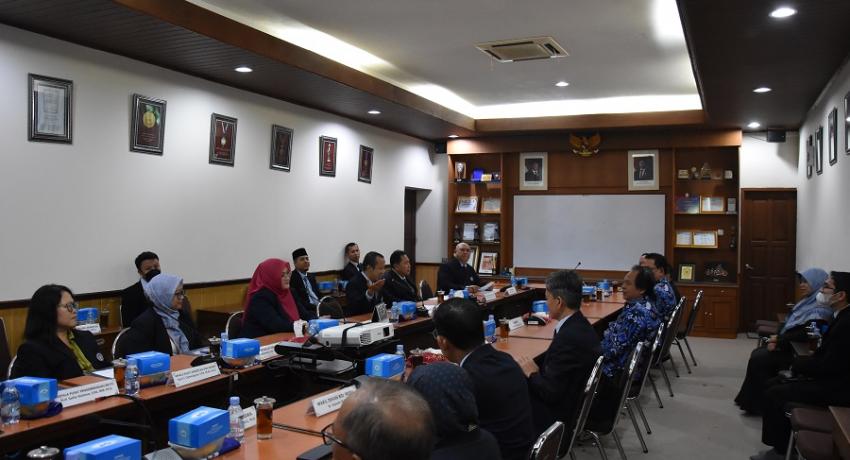The Master's Program in Physics Education at the Faculty of Mathematics and Natural Sciences (FMIPA), Universitas Negeri Yogyakarta (UNY), recently welcomed assessors from the Independent Accreditation Institute for Education (LAMDIK) for a Field Assessment (Asesmen Lapangan). The event, held at UNY’s campus, was officially opened by the Vice Rector for Academic Affairs, Prof. Nur Hidayanto Pancoro Setyo Putro, S.Pd., M.Pd., Ph.D., alongside Vice Rector for Finance Prof. Dr. Lantip Diat Prasojo, S.T., M.Pd., and other university officials. In his speech, Prof. Nur Hidayanto highlighted the university’s strong commitment to providing high-quality education, in line with the Sustainable Development Goal (SDG) 4 on Quality Education, which emphasizes inclusive and equitable education for all. The assessment was led by Prof. Dr. Parno, M.Si., and Prof. Dr. Wiyanto, M.Si., who commended UNY’s proactive steps in maintaining academic excellence and continuous improvement.
During the assessment process, Prof. Dr. Parno expressed his appreciation for the warm reception from UNY’s leadership and staff. He emphasized that quality education is the backbone of sustainable development and that regular evaluations are crucial for fostering innovation and progress. Discussions were held with faculty members and administrative staff to evaluate key areas, including curriculum design, human resources, research output, community engagement, and facilities. These elements are essential not only for academic achievement but also for empowering students to become critical thinkers and innovators who can contribute to sustainable communities.
The Field Assessment by LAMDIK is a significant step towards reinforcing UNY’s commitment to high-quality education, ensuring that the Master's Program in Physics Education continues to equip students with the skills needed to address real-world challenges. This initiative reflects UNY's alignment with SDG 4, striving to provide inclusive and equitable education while promoting lifelong learning opportunities. It is hoped that the recommendations from the assessors will drive even greater enhancements, contributing to the program's vision of nurturing future educators who are ready to inspire change and advance sustainable development.





